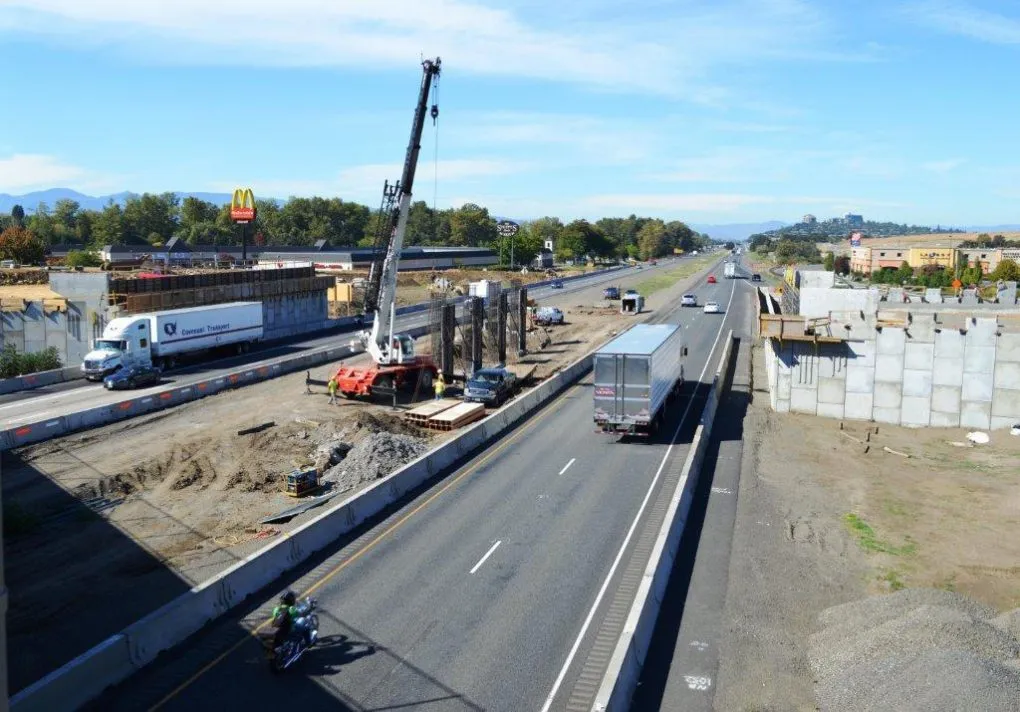The condo building collapse in south Florida should be a cautionary tale for all of us. Why? Because condo development parallels the “greed is good” mantra of the Republican Reagan Revolution in the 1980s.
We used to be smart about investing for the long term.
Prior to the 1980s, Americans understood the need to set aside revenue to cover the cost of maintaining infrastructure. We had progressive state and federal income taxes that funded those needs.
We understood that investing in our communities produced great returns. When World War II ended and our national debt was staggering, Congress authorized The GI Bill that provided college education for veterans. For every $1 invested in the GI Bill from 1944 to 1956, it produced an additional $7 dollars in tax revenue to our communities. Smart investing.
Republican President Dwight Eisenhower borrowed more money to build the interstate highway system, which produced economic activity that added tax revenues that paid down the national debt dramatically by the end of his presidency in 1960. Smart leadership.
Condo development – an example of the shift to greed
When a developer builds and then sells condo units, there are two parts to the sale: the sale price and the Home-Owners Association (HOA) fee. That fee covers maintenance and operation of the condo, such as painting, landscaping, and fixing leaky pipes, and is usually a few hundred dollars a month.
The lower the HOA fee, the higher the mortgage the buyer can afford and the higher the initial price the developer can charge — money that the developer walks away with.
Therefore, for most of the 80 years developers have been selling condos, they’ve ignored long-term maintenance costs when calculating HOA fees to keep them low, making the sale of the condos more profitable to the developer. And HOA boards are often reluctant to raise monthly fees to build a reserve for future maintenance because it lowers their own resale values.
The problem comes 20 to 40 years down the road when the condo needs a new roof or major repairs and there are no reserves to pay for it. The condo association will then have to charge a special assessment fee, often amounting to thousands of dollars per unit.
The developer walks away with the profits, and people who bought-in during later years get hit with the costs of major repairs, particularly when HOA boards choose to run the condo with no consideration for the future.
Our communities as greed-driven developments
Do you get the analogy of how NOT to govern a city, county, state, or country?
Republicans have turned some of our communities into a condo scheme since 1981.
First, Republican billionaires didn’t want to continue paying their tax rate, so they got state and federal governments to drop their rates dramatically.
Then, to deal with the loss of revenue, communities essentially stopped maintaining the infrastructure while Reagan and HW Bush subsidized the wealthy by more than tripling the national debt to $2.6 trillion in their 12 years.
Consequently, our national rail system can’t support a fast train; many water systems are polluted; many roads, buildings, and bridges are collapsing; and our electric grid can’t handle a winter storm or rising summer heat.
Some blue states have maintained state taxes over the years to be able to repair and rebuild their infrastructure, because the federal government has largely abdicated that responsibility ever since the Reagan Revolution.
Red states, with their low taxes, have become “sacrifice zones” – a geographic area lacking economic investment on infrastructure. Therefore, a state like Kentucky will benefit the most from the current infrastructure plan. (The same infrastructure plan that our own senator, Mitch McConnell, wants to kill.)
In Kentucky town after town is constantly saying, “we cannot afford it.” We have been reduced to taking years to fix a public pool, finally breaking ground for a “new” library, and spending goodwill squabbling over a statue.
Sadly, maybe it is in Kentucky’s DNA. For example, it reminds us that in Murray, the Calloway County officials turned down a Carnegie library in the early 1900s because it refused to fund the staffing and maintenance of the building.
Instead of constantly succumbing to the greed-driven policies of the Reagan conservatives, we need to celebrate communities that are spending their resources on parks and pools, having festivals like Oktoberfest, a jazz festival, a public radio station’s donors party, and sporting events like minor league baseball games to attract tourist dollars.
That is smart investing, and smart leadership. Does your town have that kind of leadership?
–30–








